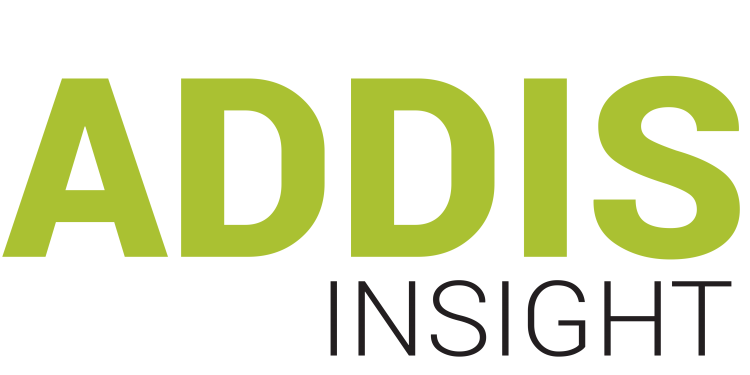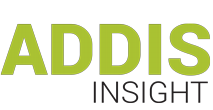These past eight years (since the expansion of the Addis Ababa boundaries in 2014)… something cracked in Ethiopia. The tenuous social contract between the government and its citizens broke down – completely. And now the war in Tigray has shown there is no honorable exit plan.
Anyway, the war will finally end this year (hope). Without going into the grim details, let me just say that this war has ravaged Ethiopia and cost the country not only economically but also the lives and well-being of hundreds of thousands of its soldiers and citizens. The war’s political impact also has been great. Globally, Ethiopia’s standing among friends and allies has fallen. Obviously the war and its aftermath have exposed a flawed decision making process and weak decision execution mechanisms of the government – but that’s a story for another time.
Like it or not the consequences of the war will be felt for many years to come. Our speculation is that it is going to be a long, hard, nasty struggle back to some sort of normalcy.
And then, against all odds and all expectations, the government announced the establishment of a Commission to conduct a National Dialogue, a prospect that would have appeared implausible just a few weeks earlier. Indeed, many opposition leaders had called for such a dialogue before, but they’ve never come close to getting it.
By the way, national dialogue processes have taken place in a number of countries that went through political transitions and have influenced the outcomes of these transitions. In West Africa, countries have held national conferences in the early 1990s as they moved from authoritarian to some sort of democratic order (Benin, Togo, Congo Brazzaville, Niger, Mali and Zaire, among others). In Afghanistan, the Emergency and Constitutional Loya Jirgas were held to support the transitional process. In Yemen, the 2013 National Dialogue Conference worked to put in place a two-year transitional process to end the conflict in the country. These processes have differed in their legal status and mandate, their independence from the government, their inclusiveness, and the role they played in the transition.
Key issues the administration should pay attention to:
It’s not clear how the new Commission will conduct the national dialogue processes and how it will generate legitimacy but let me say the Commission seem to have been given free hands to develop and negotiate the mandate of the dialogue process. Such formula has proved a successful in some countries, while in others it led to violence and to the disbanding of the dialogues.
The participants of the dialogue will be more likely to work productively when they understand the goal toward which they are working. Unclear mandates can cause confusion during a dialogue. Dialogue participants may lose focus and direction if they can easily lose sight of the goal of their work. Furthermore, when the goal is unclear, disputes regarding the goal itself may dominate the dialogue process and may take a long time to resolve given that dialogues usually include large number of participants.
In any case here are the few inherent tensions that can influence the legitimacy and effectiveness of our national Dialogue.
The mandate of the Commission:
Let’s see… How large should national dialogues be? How wide should the inclusion net be cast? What constituencies need to be included and how should their representatives be selected?
There are issues of power and mandate of the national dialogue to deal with…their relationship to existing state institutions like parliaments and governments…. their decision-making powers?
Also on the question of the independence of the national dialogues… should the decisions of national dialogues be ratified by existing institutions, or national referendums, or should their decisions be final?
Clear answers to these questions are crucial for several reasons. First, it is easier to mobilize the public around a dialogue process which has a clear mandate and is expected to reach concrete outputs. In cases where a dialogue process does not have a clear goal, it is unlikely that society will become interested in it, seek to influence it and try to participate in it. Citizens decide to invest their time in a dialogue process which they perceive as worthwhile because it is mandated to reach important outputs.
Buy-in from key stakeholders:
Finally, careful not to exclude certain powerful constituencies from the negotiations, the dialogue may not succeed as an instrument of democratic transition.
At this stage no one knows the outcome of the National Dialogue… But whatever it is, we should not miss this window of opportunity to create a fair and more sustainable future for the citizens of Ethiopia.
Selection of the 11 Commissioners for National Dialogue Commission
The first demonstration of commitment and impartiality of the Commission is on the selection of the 11 commissioners who will basically have broader say (putting it mildly) on the agenda setting, stakeholder selection and whom will be the face of the Commission. Brining on board politically charged politicians might create polarization within the commissioners themselves. hence affecting its work. Bringing on board legitimate yet de-politicized personalities has also the potential to make the commission mediocre in delivering its task. There needs to be both a political buy-in and technical expertise combined in the right balance to carefully navigate Ethiopia’s complicated dialogue ahead.
What are the odds of a stunning political failure… economic and social breakdown… including hyperinflation… and uprising?
One in two? One in ten? We don’t know.
You decide how likely it is.
Remember, if this is just another attempt from the government to undermine genuine requests that are coming from the Ethiopian stakeholders, it will pay dearly through continued societal fracture and mistrust among Ethiopians.





Many people have their opinions. Basedon ttheir wish for the Ethiopian wwelfareior their political inclination. I prefer to wait for public opinion or ccomment on the establishment of the commissionaandits objectives before any conclusion.